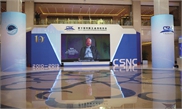- If there is a history lesson that the Chinese can learn from British Malaya in handling the Hong Kong protests, it's that the British administered their colonies well and without the need for any heavy-handed approaches, even they robbed these colonies of their rich minerals.
YOU’VE got to hand it to the British because they are really the masters at the game. Anyone who has studied basic Malayan history would know that officials during colonial times merely identified themselves as advisers.
They were British civil servants, but they called the shots.
Adding insult to injury, the Malay Rulers – as the Sultans were called then – were “led” to believe they still ran the states.
Under British Malaya – a set of states on the Malay peninsula and Singapore under British rule between the 18th and 20th centuries – British colonial officials had the last say on almost everything except religion and customary matters, which they cleverly left to the palaces.
So, in theory, the Rulers held their positions, kept their perks and all royal protocols befitting royalty, but their wings were clipped.
These were the federated states, but in the case of Straits Settlement states, British governors were appointed.
So, the famous Malacca Sultanate, with its rich lineage of Sultans, found itself having a governor, a Caucasian, as did Penang and Singapore.
Tun Dr Mahathir Mohamad put it aptly when he said last week in his speech in Britain that “Malaysia is a member of the Commonwealth, but there is nothing much in common with the wealth dominated by certain countries”.
“The British acknowledged the Malay Sultans as Rulers, but the Sultans never ruled. Therefore, when they criticised us as dictators, I don’t think they really meant it,” he said.
There was more. Under British rule in the 20th century, the British introduced repressive laws such as the Internal Security Act (ISA), used against communist insurgents.
Under the ISA, a person could be held for 60 days in solitary confinement and up to two years’ extension without trial.
Despite this, the British told the world, with a straight face, that they taught us, the natives, principles of justice, democracy and fairness, and that we all cried when they abandoned us when the Japanese invaded Malaya in 1941, and when we gained independence in 1957.
Our first prime minister, Tunku Abdul Rahman, kept the law when the Union Jack was lowered in 1957, which marked our independence.
Not many Malaysians are aware that the British imposed the ISA. Of course, during that era, only the radical left-wingers, with communist tendencies, were detained.
One ISA detainee, who was imprisoned under the British and then under the Malaysian government, said: “With the British guards, they would cheerily come every morning and wished the detainees a good day.” That was the difference.
Fast forward to 2019 and the massive turnout in Hong Kong against the controversial extradition Bill, with proposed amendments allowing for criminal suspects to be sent to China, has made international news.
It has prompted concern in Hong Kong and elsewhere that anyone from the city’s residents to foreign and Chinese nationals living or travelling through the international financial hub could be at risk if they were wanted by Beijing.
Basically, Hong Kong residents would rather face HK courts than be deported to mainland China.
Many have no faith in China’s judicial system compared to the British-style HK courts, which inherited the British legal system, and where most of the judges and lawyers are also British-trained.
The HK people can’t be blamed for their anger and suspicion since the international community has read of Chinese nationals being short-changed, or even neglected by the courts in the pursuit of justice.
And we can even read of income tax defaulters, under investigation, being hauled off to undisclosed locations, while dissidents have been taken away, and disappeared without a trace.
This bad press, verified or otherwise, would have scared many people, even though one wonders how many of these HK protesters believe, in their hearts of hearts, that they would ever get arrested and sent to China.
But the irony is that under British rule in HK, like many governments, the British widely used the law as a tool to consolidate control of Hong Kong in the hands of a privileged minority.
Legal expert Richard Daniel Klien wrote that “the British enacted legislation which in some respects instituted two sets of laws – one for the Europeans and another for the Chinese. Laws were passed to ensure no Chinese would live in the most desirable parts of Hong Kong, which the British wished to preserve as their exclusive enclaves.
“In a land in which ninety-eight per cent of the population were Chinese, English was the official language.
“The Chinese language was not permitted to be used in government offices.
“Laws regulating conduct were written exclusively in English, a language which the vast majority of the population could not understand.
“The astonishing truth of the failure of the Hong Kong Chinese to develop a significant pro-democracy or pro-independence movement, while other British colonies obtained independence long ago, testifies to the success of the British laws in accomplishing the goal of continued colonial rule over this land of six million inhabitants.”
MK Chan wrote in a law review report that “to most people in Hong Kong, the preservation of the existing legal system is of crucial importance to the high degree of autonomy the post-colonial Hong Kong Special Administrative Region is supposed to enjoy under Chinese sovereignty according to the “One Country, Two Systems” formula.
“However, this widely shared perception is flawed for one simple reason: the legal system in Hong Kong today has its own serious defects. It is not only alien in origin,” and “markedly different from the legal system in the People’s Republic of China but also defective and inadequate”.
No protest has gained voice, neither through yellow shirts nor umbrellas. And no protests were staged because the British didn’t allow elections during the colonial rule from over a century and a half.
The 1995 Hong Kong Legislative Council election for members of the Legislative Council of Hong Kong was only finally held that year – it was the first and last fully elected legislative election in the colonial period before the nation was returned to China two years later. So much for democracy and freedom.
No HK resident protested that only the white men could hold top posts in government bodies, places where there were many qualified HK civil servants who could speak and write in English better than their superiors.
To put it bluntly, there was not even a squeak – and we know how corrupt the HK police were in the 1970s – about the force being headed by Britons.
To be fair, the British transformed HK from a barren island to an international hub, with a working administration system that has won the confidence of the international community.
However, the responsibility of the British ended in 1997 when HK was handed over to the Chinese. It has lost its right to tell the Chinese what to do.
But what has brought this resentment towards China, from HK Chinese people, and perhaps, even a yearning, for British rule?
Not long ago, it was reported that some localists had taken to thumbing their nose at “China’s heavy-handed meddling” by waving the British flag at football matches, booing the Chinese anthem and chanting “We are Hong Kong! Hong Kong is not China!” in English.
Reports have also surfaced about a small Hong Kong-United Kingdom Reunification Campaign, which angled for a return to British rule but ultimately dismissed as quirky.
Then there are HK people who talk about the “good times” under British rule.
If there is a history lesson which the Chinese can learn from British Malaya, it’s that the Brits administered their colonies well and without the need for any heavy-handed approaches, even as they robbed these colonies of their rich minerals.
Reports of Beijing’s transgressions in the territory, such as the kidnapping by mainland agents of local booksellers, or the National People’s Congress purportedly stepping into local judicial cases, won’t win the hearts of the HK people.
Beijing must put on a softer face and display plenty of patience in dealing with HK. There is really no rush for China, especially with risking an international black eye at a time when it can ill afford to do so.
Yes, China is concerned about how its billion people will react if they see these hot-headed HK protesters abusing policemen.
The lessons from the breakup of the Soviet Union – and the wounded pride and dignity that follows – are always etched in the minds of Chinese leaders.
When CNN and BBC reporters talk about individual rights, they have no idea what Beijing or even the Chinese diaspora think.
But the people of HK must also accept the harsh reality – HK is now China’s sovereignty, and more and more of its independence, or even importance, will slowly fade away.
China doesn’t need HK as much as it used to as a strategic financial hub, because Chinese cities, including Beijing and Shanghai, have even eclipsed the former island nation. No matter how big or how long these protests run for, China knows the HK people don’t have the stamina, because rent and bills need to be paid, and protest sittings on streets don’t last anyway.
And the other blow is the British government’s refusal to grant citizenship to the 3.5 million Hongkongers born there under the British flag.
China needs to work harder on winning hearts and minds, and to make the HK people feel they are a fundamental part of China, and Chinese culture and pride.
HK people have always been independent because they were brought up differently and under different sets of political and legal systems, and that must be understood. There is no need to ramp through any laws, indicating that the HK people are unhappy.
The destiny of the HK people lies with China, and not Britain, but the challenge for Beijing is to make the people of HK feel those sentiments and be proud of it.
And speaking of extradition, let’s not forget that the US is also seeking to get WikiLeaks founder Julian Assange extradited from the UK for alleged crimes under the Espionage Act 1917, of which remains unclear.
He is the first journalist to have the book thrown at him for whistleblowing.
That’s not all. The US wants Huawei chief financial office Sabrina Meng Wanzhou to be extradited from Canada over charges which smell suspiciously like trumped up accusations. - by wong chun wai
Source link
Read more:






















